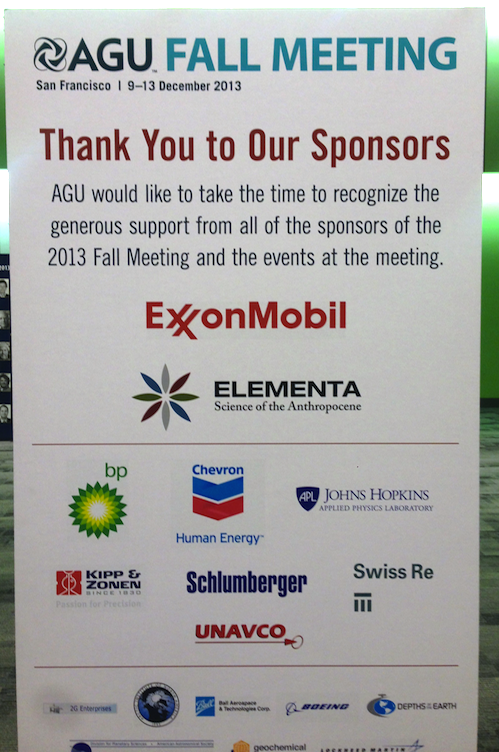 On Thursday,
September 16, the House oversight committee sent letters to U.S. oil
executives and to industry trade groups requesting “documents on the
reported role of the fossil fuel industry in a long-running,
industry-wide campaign to spread disinformation about the role of fossil
fuels in causing global warming.” The committee also announced a hearing
set for October 28, 2021 in which the executives were requested to
testify.
On Thursday,
September 16, the House oversight committee sent letters to U.S. oil
executives and to industry trade groups requesting “documents on the
reported role of the fossil fuel industry in a long-running,
industry-wide campaign to spread disinformation about the role of fossil
fuels in causing global warming.” The committee also announced a hearing
set for October 28, 2021 in which the executives were requested to
testify.
Rep. Carolyn B. Maloney (D-N.Y.), Chairwoman of the Oversight and Reform Committee, and Rep. Ro Khanna (D-Calif.), Chairman of the Subcommittee on the Environment, sent the letters to the top executives at ExxonMobil Corporation, BP America Inc., Chevron Corporation, Shell Oil Company, American Petroleum Institute, and the U.S. Chamber of Commerce.
“We are deeply concerned that the fossil fuel industry has reaped massive profits for decades while contributing to climate change that is devastating American communities, costing taxpayers billions of dollars, and ravaging the natural world,” the chairs wrote. “We are also concerned that to protect those profits, the industry has reportedly led a coordinated effort to spread disinformation to mislead the public and prevent crucial action to address climate change.”
The four companies involved reported nearly $2 trillion in profits between 1990 and 2019. They and the trade groups are now the defendants in a growing number of civil lawsuits from individuals and localities suffering the harms of fossil-fueled climate pollution.
In 2019, Rep. Khanna oversaw a hearing examining the oil industry’s efforts to suppress the truth about climate change.
In 2015, InsideClimateNews and others broke the story of how ExxonMobil led the industry in waging a climate disinformation campaign with full knowledge of the dangers of fossil fuels. Following those reports, Sen. Sheldon Whitehouse (D-R.I.) spoke on the Senate floor calling for a RICO investigation of ExxonMobil’s history of deliberate climate deception. Reps. Ted Lieu (D-Calif.) and Mark DeSaulnier (D-Calif.) called for the Department of Justice to investigate the legality of ExxonMobil’s “sustained deception campaign disputing climate science.”
From the committee’s press release:
Public reporting indicates that these companies and their allies in the fossil fuel industry have worked to prevent serious action on global warming by generating doubt about the documented dangers of fossil fuels and misrepresenting the scale of their efforts to develop alternative energy technologies—similar tactics deployed by the tobacco industry to resist regulation while selling products that kill hundreds of thousands of Americans.
These strategies of obfuscation and distraction span decades and still continue today. Between 2015 and 2018, the five largest publicly traded oil and gas companies reportedly spent $1 billion to promote climate disinformation through “branding and lobbying.”
Fossil fuel companies increasingly outsource lobbying to trade groups, obscuring their own roles in disinformation efforts. Recently, an ExxonMobil lobbyist was caught on video discussing the tactics employed by ExxonMobil to obstruct climate change legislation, including using API and other industry groups as the “whipping boy” to advocate for policy positions that ExxonMobil did not want to be associated with publicly.
The committee requested that the recipients produce documents and communications by September 30, 2021, “related to their organizations’ role in supporting disinformation and misleading the public to prevent action on the climate crisis.”
- The letter to ExxonMobil Corporation CEO Darren Woods
- The letter to BP America Inc. CEO David Lawler
- The letter to Chevron Corporation CEO Michael K. Wirth
- The letter to Shell Oil Company President Gretchen Watkins
- The letter to the American Petroleum Institute President Mike Sommers
- The letter to the U.S. Chamber of Commerce President and CEO Suzanne Clark
 The annual conference of
the American Geophysical Union (AGU), the top meeting of the world’s
climate science community, enjoys the “generous support” of the world’s
largest greenhouse polluters, including ExxonMobil, Chevron, and BP. The
The annual conference of
the American Geophysical Union (AGU), the top meeting of the world’s
climate science community, enjoys the “generous support” of the world’s
largest greenhouse polluters, including ExxonMobil, Chevron, and BP. The
